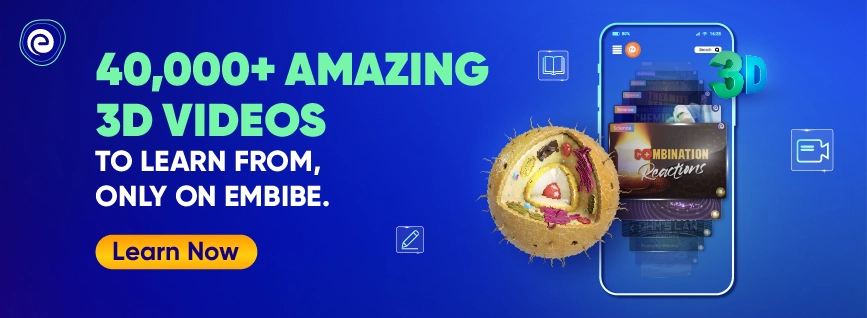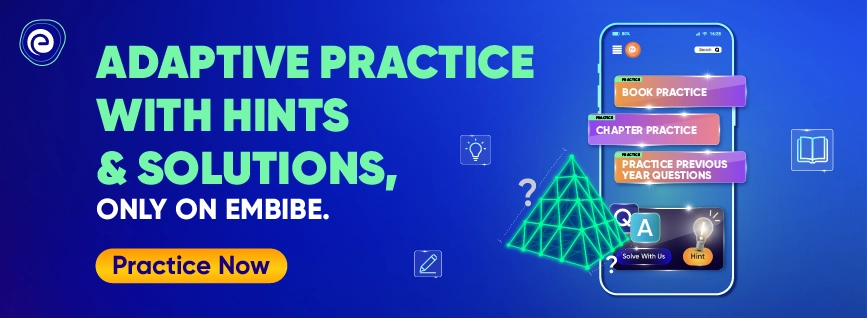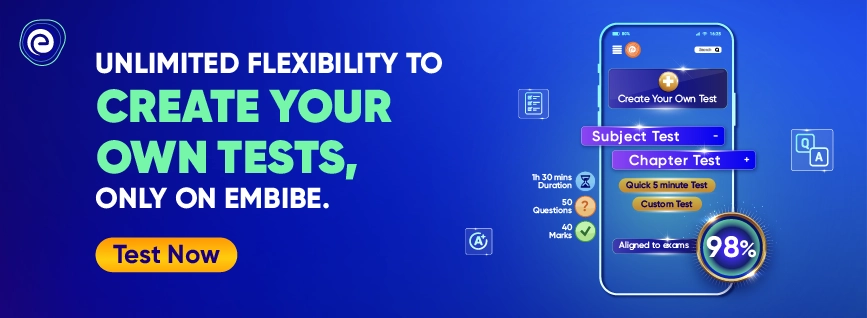- Written by nikhil
- Last Modified on 22-02-2023
Delhi Board Class 7 Exam 2023
The Board of Higher Secondary Education (BHSE) is responsible for the secondary and higher secondary examinations. The Board prescribes the NCERT syllabus for all its classes. Thus Delhi Board Class 7 exam is conducted based on the curriculum set by NCERT. The schools affiliated with BHSE follow the guidelines set by the Board for all its classes.
The BHSE aims at providing high-quality education to students studying in its affiliated schools. Delhi Board Class 7 is a pen-paper-based exam carried out to evaluate the performance of students for their selection for the next year, i.e. Class 8. In this article, we have provided subject-wise syllabus, preparation tips and other information for Delhi Board Class 7. Continue reading to know more.
Delhi Board Class 7 Exam Summary 2023
The Delhi Board Class 7 exam is conducted internally. These marks are divided into ‘Formative Assessment’ and ‘Summative Assessment’. To clear the Delhi Board Class 7 exam require paying attention in classroom, self- studies, revision, and solving sample questions.
According to the guidelines of the Delhi Board, every school should evaluate students’ performance and growth by CCE (Continuous Comprehensive Evaluation) through Formative Assessments (FA) and Summative Assessments (SA) of three core subjects, i.e., Mathematics, Science, Social science and two languages, one is English and the other can be anyone among Hindi, Sanskrit, Urdu, regional language or foreign language. Delhi Board also gives equal importance to co-curricular activities.
The examination is conducted in two terms:
| Term |
Marks for Formative Assessment |
Marks for Summative Assessments |
Total percentage |
| Term I |
10% |
40% |
50% |
| Term II |
10% |
40% |
50% |
| Total |
20% |
80% |
100% |
Scholastic Areas
Formative Assessment (FA): Formative assessment includes both the pen and paper test and also testing through interviews, visual testing, assignment, practicals, oral testing, projects, puzzles, group activities, etc.
Summative Assessment (SA): It is conducted half-yearly, as decided by the school authority, strictly adhering to the guidelines of the Delhi Board. Under this assessment process, the students will be examined on the basis of the Syllabus and curriculum of Delhi Board Class 7.
Co-scholastic Areas
Apart from the scholastic areas, the co-scholastic skills will also be assessed for the students. In this evaluation, grades will be offered in various co-scholastic skills such as Attitude and Values, Aesthetic Skills, Health and Physical Education, Participation and Achievement in Literary and Creative Skills will be evaluated.
Delhi Board Official Website Link
https://www.bhsedelhiboard.net/
Delhi Board Class 7 Syllabus 2023
The Delhi Board Class 7 syllabus is prepared with the aim to impart knowledge among students and keep them updated with the latest information. In Delhi Board Class 7, students have thedom to select one language like Hindi, Sanskrit, foreign language or regional language, etc., out of two languages apart from English.
Delhi Board Class 7 Mathematics Syllabus
The Delhi Board Class 7 Maths syllabus helps focus learners on understanding the concepts. They should be able to solve any type of question on any topic, in the exam. Students can get sample problems and mock tests for Delhi Board 7th Maths on Embibe. The Delhi Board Class 7 Maths syllabus is as follows:
| Chapter |
Name of the Chapter |
| Chapter 1 |
Integers |
| Chapter 2 |
Fractions and Decimals |
| Chapter 3 |
Data Handling |
| Chapter 4 |
Simple Equations |
| Chapter 5 |
Lines and Angles |
| Chapter 6 |
The Triangle and its Properties |
| Chapter 7 |
Congruence of Triangles |
| Chapter 8 |
Comparing Quantities |
| Chapter 9 |
Rational Numbers |
| Chapter 10 |
Practical Geometry |
| Chapter 11 |
Perimeter and Area |
| Chapter 12 |
Algebraic Expressions |
| Chapter 13 |
Exponents and Powers |
| Chapter 14 |
Symmetry |
| Chapter 15 |
Visualising Solid Shapes |
Delhi Board Class 7 Science Syllabus
The Delhi Board Class 7 Science is framed so that learners can understand the concepts without any burden by focusing on interesting activities, experiments, projects, etc. Embibe’s 3D videos will help students watch their chapter topics and understand them better. The Delhi Board Class 7 Science syllabus is as follows:
| Chapter |
Name of the Chapter |
| Chapter 1 |
Nutrition in Plants |
| Chapter 2 |
Nutrition in Animals |
| Chapter 3 |
Fibre to Fabric |
| Chapter 4 |
Heat |
| Chapter 5 |
Acids, Bases, and Salts |
| Chapter 6 |
Physical and Chemical Changes |
| Chapter 7 |
Weather, Climate and Adaptation of Animals to Climate |
| Chapter 8 |
Winds, Storms, and Cyclones |
| Chapter 9 |
Soil |
| Chapter 10 |
Respiration in Organisms |
| Chapter 11 |
Transportation in Animals and Plants |
| Chapter 12 |
Reproduction in Plants |
| Chapter 13 |
Motion and Time |
| Chapter 14 |
Electric Current and Its Effects |
| Chapter 15 |
Light |
| Chapter 16 |
Water: A Precious Resource |
| Chapter 17 |
Forest: Our Lifeline |
| Chapter 18 |
Waste Water Story |
Delhi Board Class 7 Social Science Syllabus
The Delhi Board Class 7 Social Science teaches about the History, Geography and Civics of the society. Social Science is a fundamental part of general education since it aims to develop an empirical, reasonable and humane outlook. The syllabus of Delhi Board Class 7 Social Science is as follows:
| Chapter |
Name of the Chapter |
Section |
| Chapter 1 |
On Equality |
Civic |
| Chapter 2 |
Role of Government in Health |
| Chapter 3 |
How the State Government Works |
| Chapter 4 |
Growing Up as Boys and Girls |
| Chapter 5 |
Women Change the World |
| Chapter 6 |
Understanding Media |
| Chapter 7 |
Understanding Advertising |
| Chapter 8 |
Markets Around Us |
| Chapter 9 |
A Shirt in the Market |
| Chapter 10 |
Tracing Changes Through a Thousand Years |
History |
| Chapter 11 |
New Kings and Kingdoms |
| Chapter 12 |
The Delhi Sultans |
| Chapter 13 |
The Mughal Empire |
| Chapter 14 |
Rulers and Buildings |
| Chapter 15 |
Towns, Traders, and Craftsperson |
| Chapter 16 |
Tribes, Nomads, and Settled Communities |
| Chapter 17 |
Devotional Paths to the Divine |
| Chapter 18 |
The Making of Regional Cultures |
| Chapter 19 |
Eighteenth- Century Political Formations |
| Chapter 20 |
Environment |
Geography |
| Chapter 21 |
Inside Our Earth |
| Chapter 22 |
Our Changing Earth |
| Chapter 23 |
Air |
| Chapter 24 |
Water |
| Chapter 25 |
Natural Vegetation and Wildlife |
| Chapter 26 |
Human Environment Settlement, Transport and Communication. |
| Chapter 27 |
Human Environment and Interaction – The Tropical and Subtropical Region |
| Chapter 28 |
Life in Temperate Grasslands |
| Chapter 29 |
Life in the Deserts |
Delhi Board Class 7 English Syllabus
The NCERT English syllabus is constructed so that it promotes language growth, vocabulary development through reading extensively with comprehension and interest and writing activities of a higher order. Delhi Board Class 7 has two NCERT prescribed textbooks. The books are Honeycomb and An Alien Hand supplementary reader.
The Syllabus of Honeycomb
| Chapter |
Name of the Chapter |
| Chapter 1 |
Three Questions |
| Chapter 2 |
A Gift of Chappals |
| Chapter 3 |
Gopal and the Hilsa Fish |
| Chapter 4 |
The Ashes that Made Trees Bloom |
| Chapter 5 |
Quality |
| Chapter 6 |
Expert Detectives |
| Chapter 7 |
The Invention of Vita – Wonk |
| Chapter 8 |
Fire Friend and Foe |
| Chapter 9 |
A Bicycle in Good Repair |
| Chapter10 |
The Story of Cricket |
| Chapter |
Name of the Poem |
| Chapter 11 |
The Squirrel |
| Chapter 12 |
The Rebel |
| Chapter 13 |
The Shed |
| Chapter 14 |
Chivvy |
| Chapter 15 |
Trees |
| Chapter 16 |
Mystery of the Talking Fan |
| Chapter 17 |
Dad and the Cat and the Tree |
| Chapter 18 |
Meadow Surprises |
| Chapter 19 |
Garden Snake |
An Alien Hand
| Chapter |
Name of the Chapter |
| Chapter 1 |
The Tiny Teacher |
| Chapter 2 |
Bringing Up Kari |
| Chapter 3 |
The Desert |
| Chapter 4 |
The Cop and the Anthem |
| Chapter 5 |
Golu Grows A Nose |
| Chapter 6 |
I Want something In The Cage |
| Chapter 7 |
Chandni |
| Chapter 8 |
The Bear Story |
| Chapter 9 |
A Tiger In The House |
| Chapter10 |
An Alien Hand |
English Grammar
Apart from this, Grammar is also an important part of the English Syllabus. The topics included under the English Grammar section are:
- Determiners
- Linking Words,
- Adverbs (place and type)
- Tense forms
- Clauses
- Passivisation
- Adjectives (Comparative and Superlative)
- Modal Auxiliaries
- Word order in sentence types
- Reported speech
Delhi Board Class 7 Hindi Syllabus
The Syllabus for Delhi Board Class 7 Hindi comprises Grammar, Composition and Literature (Prose and Poetry). The students must know the Delhi Board Class 7 Syllabus for Hindi. On this page, we have provided all the important topics or chapters for Hindi Class 7. It will be beneficial for those students who want to prepare well for Hindi. Make sure to go through the Delhi Board Class 7 Hindi Syllabus well.
Delhi Board Class 7 Hindi syllabus has been divided into the following sections –
- Hindi syllabus for Vasant
- Hindi syllabus for Durva
- Hindi grammar syllabus
- Hindi syllabus for Bal Mahabharat
Vasant Book
| Chapter |
Name of the Chapter |
| Chapter-1 |
हम पंछी उन्मुक्त गगन क |
| Chapter-2 |
दादी माँ |
| Chapter-3 |
हिमालय की बेटियां |
| Chapter-4 |
कठपुतली |
| Chapter-5 |
मीठाईवाला |
| Chapter-6 |
रक्त और हमारा शरीर |
| Chapter-7 |
पापा खो गए |
| Chapter-8 |
शाम एक किशान |
| Chapter-9 |
चिड़िया की बच्ची |
| Chapter-10 |
अपूर्व अनुभव |
| Chapter-11 |
रहीम की दोहे |
| Chapter-12 |
कंचा |
| Chapter-13 |
एक तिनका |
| Chapter-14 |
खानपान की बदलती तस्वीर |
| Chapter-15 |
नीलकंठ |
| Chapter-16 |
भोर और बरखा |
| Chapter-17 |
वीर कुवर सिंह |
| Chapter-18 |
संघर्ष के कराण मैं तुनुकमिजाज हो गया धनराज |
| Chapter-19 |
आश्रम का अनुमानित व्यय |
| Chapter-20 |
विप्लव गायन |
Delhi Board Syllabus for Class 7 Hindi (Mahabharat Book)
| Chapter |
Name of the Chapter |
| Chapter-1 |
देवब्रत |
| Chapter-2 |
भीष्म-प्रतिज्ञा |
| Chapter-3 |
अंबा और भीष्म |
| Chapter-4 |
विदुर |
| Chapter-5 |
कुंती |
| Chapter-6 |
भीम |
| Chapter-7 |
कर्ण |
| Chapter-8 |
द्रोणाचार्य |
| Chapter-9 |
लाख का घर |
| Chapter-10 |
पांडवों की रक्षा |
| Chapter-11 |
द्रौपदी-स्वयंवर |
| Chapter-12 |
इंद्रप्रस्थ |
| Chapter-13 |
जरासंध |
| Chapter-14 |
शकुनि का प्रवेश |
| Chapter-15 |
चौसर का खेल व द्रौपदी की व्यथा |
| Chapter-16 |
धृतराष्ट्र की चिता |
| Chapter-17 |
भीम और हनुमान |
| Chapter-18 |
द्वेष करनेवाले का जी नहीं भरता |
| Chapter-19 |
मायावी सरोवर |
| Chapter-20 |
यक्ष-प्रश्न |
| Chapter-21 |
अज्ञातवास |
| Chapter-22 |
प्रतिज्ञा-पूर्ति |
| Chapter-23 |
विराट का भ्रम |
| Chapter-24 |
मंत्रणा |
| Chapter-25 |
राजदूत संजय |
| Chapter-26 |
शांतिदूत श्रीकृष्ण |
| Chapter-27 |
पांडवों और कौरवों के सेनापति |
| Chapter-28 |
पहला, दूसरा और तीसरा दिन |
| Chapter-29 |
चौथा, पाँचवाँ और छठा दिन |
| Chapter-30 |
सातवाँ, आठवाँ और नवाँ दिन |
| Chapter-31 |
भीष्म शर-शय्या पर |
| Chapter-32 |
बारहवाँ दिन |
| Chapter-33 |
अभिमन्यु |
| Chapter-34 |
युधिष्ठिर की चिंता और कामना |
| Chapter-35 |
भूरिश्रवा, जयद्रथ और आचार्य द्रोण का अंत |
| Chapter-36 |
कर्ण और दुर्योधन भी मारे गए |
| Chapter-37 |
अश्वत्थामा |
| Chapter-38 |
युधिष्ठिर की वेदना |
| Chapter-39 |
पांडवों का धृतराष्ट्र के प्रति व्यवहार |
| Chapter-40 |
श्रीकृष्ण और युधिष्ठिर |
Delhi Board Syllabus for Class 7 Hindi (Durva Book)
| Chapter |
Name of the Chapter |
| Chapter-1 |
चिड़िया और चुरुंगुन |
| Chapter-2 |
सबसे सुंदर लड़की |
| Chapter-3 |
मैं हूँ रोबोट |
| Chapter-4 |
गुब्बारे पर चीता |
| Chapter-5 |
थोड़ी धरती पाऊँ |
| Chapter-6 |
गारो |
| Chapter-7 |
पुस्तकें जो अमर हैं |
| Chapter-8 |
काबुलीवाला |
| Chapter-9 |
विश्वेश्वरैया |
| Chapter-10 |
हम धरती के लाल |
| Chapter-11 |
पोंगल |
| Chapter-12 |
शहीद झलकारीबाई |
| Chapter-13 |
नृत्यांगना सुधा चंद्रन |
| Chapter-14 |
पानी और धूप |
| Chapter-15 |
गीत |
Delhi Board Syllabus for Class 7 Hindi Grammar
| भाषा और व्याकरण |
क्रिया |
| वर्ण विचार |
काल |
| शब्द विचार |
वाच्य |
| वर्तनी |
अव्यय |
| संज्ञा |
संधि |
| लिंग (संज्ञा के विकार) |
समास |
| वचन |
उपसर्ग एवं प्रत्यय |
| कारक |
वाक्य |
| सर्वनाम |
वाक्य अशुद्धियाँ एवं संशोधन |
| विशेषण |
विराम-चिह्न |
| शब्द-भंडार |
मुहावरे एवं लोकोक्तियाँ |
Delhi Board Class 7 Exam Blueprint 2023
Knowing the Delhi Board Class 7 blueprint will help students get an idea about the marks weightage of the chapters. Thus, students can prepare each subject accordingly. It will help them score maximum marks in the final exam. The Delhi Board Class 7 subject-wise blueprint are given as below:
Delhi Board Class 7 Mathematics Blueprint
| Chapter Number |
Name of the Chapter |
Marks Weightage |
| Term I |
Term II |
| Chapter 1 |
Integers |
7 |
– |
| Chapter 2 |
Fractions and Decimals |
8 |
– |
| Chapter 3 |
Data Handling |
7 |
– |
| Chapter 4 |
Simple Equations |
7 |
– |
| Chapter 5 |
Lines and Angles |
6 |
– |
| Chapter 6 |
The Triangle and its Properties |
– |
3 |
| Chapter 7 |
Congruence of Triangles |
– |
4 |
| Chapter 8 |
Comparing Quantities |
– |
4 |
| Chapter 9 |
Rational Numbers |
– |
5 |
| Chapter 10 |
Practical Geometry |
– |
3 |
| Chapter 11 |
Perimeter and Area |
– |
6 |
| Chapter 12 |
Algebraic Expressions |
– |
6 |
| Chapter 13 |
Exponents and Powers |
– |
6 |
| Chapter 14 |
Symmetry |
5 |
– |
| Chapter 15 |
Visualising Solid Shapes |
– |
3 |
| |
Summative Assessment (SA) |
40 |
40 |
| |
Formative Assessment (FA) |
10 |
10 |
| |
Total |
50 |
50 |
Blueprint for Delhi Board Class 7 Science
| Chapter Number |
Name of the Chapter |
Marks Weightage |
| Term I |
Term II |
| Chapter 1 |
Nutrition in Plants |
5 |
– |
| Chapter 2 |
Nutrition in Animals |
6 |
– |
| Chapter 3 |
Fibre to Fabric |
– |
3 |
| Chapter 4 |
Heat |
5 |
– |
| Chapter 5 |
Acids, Bases, and Salts |
– |
4 |
| Chapter 6 |
Physical and Chemical Changes |
5 |
– |
| Chapter 7 |
Weather, Climate and Adaptation of Animals to Climate |
– |
3 |
| Chapter 8 |
Winds, Storms, and Cyclones |
– |
2 |
| Chapter 9 |
Soil |
6 |
– |
| Chapter 10 |
Respiration in Organisms |
– |
4 |
| Chapter 11 |
Transportation in Animals and Plants |
– |
5 |
| Chapter 12 |
Reproduction in Plants |
– |
5 |
| Chapter 13 |
Motion and Time |
– |
4 |
| Chapter 14 |
Electric Current and Its Effects |
– |
5 |
| Chapter 15 |
Light |
– |
5 |
| Chapter 16 |
Water: A Precious Resource |
4 |
– |
| Chapter 17 |
Forest: Our Lifeline |
4 |
– |
| Chapter 18 |
Waste Water Story |
5 |
– |
| |
Summative Assessment (SA) |
40 |
40 |
| |
Formative Assessment (FA) |
10 |
10 |
| |
Total |
50 |
50 |
Blueprint for Delhi Board Class 7 Social Science
| Chapter Number |
Name of the Chapter |
Marks Weightage |
Section |
| Term I |
Term II |
| Chapter 1 |
On Equality |
– |
4 |
Civic |
| Chapter 2 |
Role of Government in Health |
– |
3 |
| Chapter 3 |
How the State Government Works |
2 |
– |
| Chapter 4 |
Growing Up as Boys and Girls |
– |
2 |
| Chapter 5 |
Women Change the World |
– |
3 |
| Chapter 6 |
Understanding Media |
1 |
– |
| Chapter 7 |
Understanding Advertising |
1 |
– |
| Chapter 8 |
Markets Around Us |
3 |
– |
| Chapter 9 |
A Shirt in the Market |
4 |
– |
| Chapter 10 |
Tracing Changes Through a Thousand Years |
– |
4 |
History |
| Chapter 11 |
New Kings and Kingdoms |
– |
3 |
| Chapter 12 |
The Delhi Sultans |
– |
2 |
| Chapter 13 |
The Mughal Empire |
3 |
– |
| Chapter 14 |
Rulers and Buildings |
– |
3 |
| Chapter 15 |
Towns, Traders, and Craftsperson |
– |
4 |
| Chapter 16 |
Tribes, Nomads, and Settled Communities |
4 |
– |
| Chapter 17 |
Devotional Paths to the Divine |
3 |
– |
| Chapter 18 |
The Making of Regional Cultures |
2 |
– |
| Chapter 19 |
Eighteenth-Century Political Formations |
4 |
– |
| Chapter 20 |
Environment |
2 |
– |
Geography |
| Chapter 21 |
Inside Our Earth |
– |
4 |
| Chapter 22 |
Our Changing Earth |
1 |
– |
| Chapter 23 |
Air |
– |
2 |
| Chapter 24 |
Water |
– |
3 |
| Chapter 25 |
Natural Vegetation and Wildlife |
3 |
– |
| Chapter 26 |
Human Environment Settlement, Transport and Communication. |
2 |
– |
| Chapter 27 |
Human Environment and Interaction – The Tropical and Subtropical Region |
3 |
– |
| Chapter 28 |
Life in Temperate Grasslands |
– |
3 |
| Chapter 29 |
Life in the Deserts |
2 |
– |
| |
Summative Assessment (SA) |
40 |
40 |
|
| |
Formative Assessment (FA) |
10 |
10 |
|
| |
Total |
50 |
50 |
|
Blueprint for Delhi Board Class 7 English
In English, marks are divided into three sections, i.e., Section A (Reading comprehension), Section B (Writing skill & Grammar), and section C (Literature textbooks).
| Section |
Marks Weightage |
| Term I |
Term II |
| Section A |
10 |
10 |
| Section B |
15 |
15 |
| Section C |
15 |
15 |
| Summative Assessment (SA) |
40 |
40 |
| Formative Assessment (FA) |
10 |
10 |
| Total |
50 |
50 |
Practical/Experiments list & Model writeup
- Experiment on the need for light, green leaf for photosynthesis, looking at any saprophyte/parasite and noting differences from a green plant.
- Activity on the effect of saliva on starch, the permanent slide of Amoeba.
- Collection of different samples of woollen and silk cloth. Activities to differentiate natural silk and wool from artificial fibres.
- Experiment to show that ‘hot’ and ‘cold’ are relative. Experiments to show conduction, convection and radiation
- Reading a thermometer.
- Testing solutions of common substances like sugar, salt, vinegar, lime juice, etc., with turmeric, litmus, china rose. Activity to show neutralisation.
- Experiments involving chemical reactions like rusting of iron, neutralisation (vinegar and baking soda), displacement of Cu from CuSO4 etc.
- Making crystals of easily available substances like urea, alum, copper sulphate etc., using supersaturated solutions and evaporation.
- Graph for daily changes in temperature, day length, humidity etc.; the texture of various soils by wetting and rolling; absorption/percolation of water in different soils, which soil can hold more water.
- Experiment to show plants and animals respire; rate of breathing; what do we breathe out? What do plants ‘breathe’ out? Respiration in seeds; heat release due to respiration. Anaerobic respiration, root respiration.
- Translocation of water in stems, demonstration of transpiration, measurement of pulse rate, heartbeat; after exercise etc.
- Discussion on dialysis, importance; experiment on dialysis using egg membrane.
- Study of tuber, corm, bulb, etc; budding in yeast; T.S./ L.S. ovaries, w.m.pollen grains; comparison of wind-pollinated and insect-pollinated flowers; observing fruit and seed development in some plants; collection and discussion of fruits/seeds dispersed by different means.
- Observing and analysing motion (slow or fast) of common objects on land, in air, water and space. Measuring the distance covered by objects moving on a road in a given time and calculating their speeds. Plotting distance vs time graphs for uniform motion. Measuring the time taken by moving objects to cover a given distance and calculating their speeds. The constancy of the time period of a pendulum.
- Activities to show the heating effect of electric current and making a fuse.
- Activity to show that a current-carrying wire has an effect on a magnet.
- Making a simple electromagnet activity.
- Identifying situations in daily life where electromagnets are used.
- Demonstration of working of an electric bell.
- Making wind speed and wind direction indicators. Activity to show “lift” due to moving air.
- Observation of the source of light through a straight tube, a bent tube.
- Observing the reflection of light on a wall or white paper screen.
- Open-ended activities allow children to explore images made by different objects and record observations.
- Making the disc and rotating it.
- Case study of people living in conditions of extreme scarcity of water, how they use water in a judicious way.
- Projects exploring various kinds of water resources that exist in nature in different regions in India; variations of water availability in different regions.
- Case study of forests.
- Survey of the neighbourhood, identifying locations with open drains, stagnant water, and possible contamination of groundwater by sewage. Tracing the route of sewage in your building, and trying to understand whether there are any problems in sewage.
Delhi Board Class 7 Study Plan to Maximise Score
Developing a strong base in the concepts is the most important aspect of studying. It is necessary to answer questions and get maximum marks in the exam. We have provided Delhi Board Class 7 study plan to maximise score in their exam.
Delhi Board Class 7 Preparation Tips
To score better marks in Delhi Board Class 7 examination, some preparation tips will come handy to the students. It will help them plan an exam routine and remember key points from the topics.
- For the chapters that include calculations, practice questions for all topics. For example, some mathematics chapters can have problems mainly involving calculations. Therefore, we must solve it by ourselves without taking the help of a calculator. This will increase our calculation speed and accuracy.
- If at any time one gets stuck or faces any difficulties in understanding any concept, then We at Embibe are always there to get you through all the obstacles.
- The golden rule is to divide the syllabus evenly and study every day regularly. We should keep the days near the exam only for revisions.
- Never shy away from getting your doubts clarified. It is completely fine not to know something and make mistakes. We at Embibe offer a variety of tools and innovative methods and tools to explain every concept thoroughly.
- Every subject is interesting and equally important. Never skip any of the subjects or chapters.
- One should be very consistent and track the learning and progress on a day-to-day basis. This will let one have plenty of time for revision before the exam.
- Attempt several Embibe mock tests to get accustomed to the test pattern.
Delhi Board Class 7 Detailed Study Plan
A detailed study plan is a well-structured plan for proper utilisation of the study time. This will help to be more efficient in studies. It is always better to create a timetable for studying each day. It is recommended to spend at least four to five hours each day by yourself in studies in a well-planned manner.
- Develop a habit of answer-writing. It is a proven fact that we tend to memorise things faster when we write them down.
- While studying any subject, try to connect them to real-life situations. This will help to understand and grasp concepts better and faster.
- Embibe has created interesting and creative videos and practice sessions on all the 7th Delhi Board topics, and if one needs a better understanding of all the concepts, then it is highly recommended to use Embibe and get the most out of the learning journey.
- Solve sample questions on all the topics and work on weak areas.
FAQs on Delhi Board Class 7
Here are some frequently asked questions on Delhi Board Class 7:
Q: How many subjects are there in Delhi Board Class 7?
Ans: In Delhi Board Class 7, there are a total of fourteen subjects to choose from. It consists of three compulsory core subjects: mathematics, science and social science and two languages, English and one optional language like Hindi, Sanskrit, regional languages, foreign languages, etc.
Q: Are the Delhi Board Class 7 board level exams?
Ans: No. The Delhi Board Class 7 exams are conducted internally by schools. The students are evaluated by the school level administration by CCE (Continuous Comprehensive Evaluation) method.
Q: How many language subjects are there in Delhi Board class 7?
Ans: There are two languages for Delhi Board class 7, one is English that is compulsory, and the other one can be chosen from Sanskrit, Hindi, Urdu, or any other regional language.
Q: Which is the best site to practice questions for Delhi Board Class 7 subjects?
Ans: Embibe is an excellent platform that offers and fulfils every student’s requirement throughout their learning journey. Here is the link for the books required for the Class 7 Delhi Board.
Q: Where can I get mock tests for Delhi Board Class 7?
Ans: Students can attempt unlimited mock tests for Delhi Board Class 7 subjects on the Embibe app.
List of Schools for Delhi Board Class 7
Parents wish to provide the best education to their children. For that, they need to pick the best school which will play an important role in the overall growth and development of the children. The list of schools in Delhi affiliated to Delhi board is as follows.
| Sl No. |
School Details |
School Code |
| 1 |
Ankit Sr. Sec. School Aligarh – UP |
128 |
| 2 |
Chetna Sr. Sec. School Katihar (Bihar) |
370 |
| 3 |
Dr. B.R.A Sr. Sec. School Meerut – UP |
107 |
| 4 |
G S M Sr. Sec. School Katihar (Bihar) |
0292 |
| 5 |
Gurukul Shiksha Mandir Sansthan, Katihar (Bihar) |
0292-A |
| 6 |
Gurukul Vidya Mandir Sr. Sec. School Ranchi Bangar, Mathura (U.P.) |
151 |
| 7 |
Maharana Pratap Sr. Sec. School – Hr |
144 |
| 8 |
Motilal Sr. Sec. School Bhavapur Teekari Aligarh – Up |
108 |
| 9 |
Shri M.B.D. Inter College Doora Agra (U.P) |
145 |
| 10 |
Success Senior Secondary College Bangalore, Karnataka |
1068 |
| 11 |
Vinoba Bhave Sr. Sec. School , Ellenabad |
105 |
The several Delhi Board school lists, either state or region wise can be found using the following link: List of Schools
List of Future Exams After Delhi Board Class 7
In this competitive world, exams are one of the important methods to bring out students' interests, capacity and potential. We have a school level examination for promotion to the next grade based on Continuous Comprehensive Evaluation (CCE). We also have many other examinations apart from this conventional school level examination in which the students can take part and show their talents and skills.
Some of the competitive exams to which class 7 students can appear are:
- International Science Olympiad (ISO)
- International Mathematics Olympiad (IMO)
- English International Olympiad (EIO)
- General Knowledge International Olympiad (GKIO)
- International Computer Olympiad (ICO)
- International Drawing Olympiad (IDO)
- National Essay Olympiad (NESO)
- National Social Studies Olympiad (NSSO)
Some of the competitive exams to which class 7th students can start preparing for:
- National Talent Search Examination (NTSE): Students are tested based on their knowledge and understanding of Science, Mathematics, Social Science, Mental Ability and General Knowledge. Cash prizes and scholarships award qualified students for the next academic year.
- National Level Science Talent Search Exam (NLSTSE): The exam consists of subjects like Mathematics, Physics, Chemistry, Biology and other general Awareness questions.
- Indian National Olympiad (INO): The Syllabus includes Physics, Chemistry, Biology, Astronomy and Junior Science. This exam contains a five-stage procedure. The initial stage is the written exam conducted by NSE (National Standard Examination).
- GeoGenius: This exam aims to create interest in geography. In this exam, students are asked to mark the various locations of India on a blank map.
- National Interactive Mathematics Olympiad (NIMO): This exam tests and analyses the students' mental ability and mathematical skills. This exam aims to identify the students with exceptional skills and interests in the area of mathematics.
Practical Knowledge/Career Goals
Learning from Real World
It is always very important to learn a new concept using the relevance of the real world to learn and understand the concepts better. When concepts are viewed from the real-world perspective, the utility and the importance of the concept become clear to the students. This increases the interest of the students in the subject. Therefore it is important to have experiments, practical, group activities and field trips.
Future Skills
Coding
In this modern world, we have computers everywhere, and skills like coding and data analysis have become the most in-demand skills. In class 7th in Delhi Board, the Computer is an important subject that lays down the foundation of the coding that will be very helpful for the students in the future, and it will give an edge for the Delhi Board students.
Do It Yourself (DIY)
It is a creative and innovative learning method through practical activities and projects. Language Subjects like English and Hindi can be taught through drama; many social science topics can be taught and explained through debate, survey, fieldwork, etc. Science can be experienced via different experiments field studies, etc. Similarly, many of the mathematics topics like profit, loss, measuring the area, etc., could be taught to the students by doing the activities by the students. Embibe App provides DIY for every grade, subject, and chapter to make your learning joyful and interesting.
Career Skills
Listening skills, Understanding diversity in the workplace, research skills, language skills, leadership skills, planning, being emotionally balanced, self-survey, exploring knowledge, communication skills, etc., are as important as academic performance, and these can only be developed by interactive team activities and projects that require a team effort and leadership skills















































